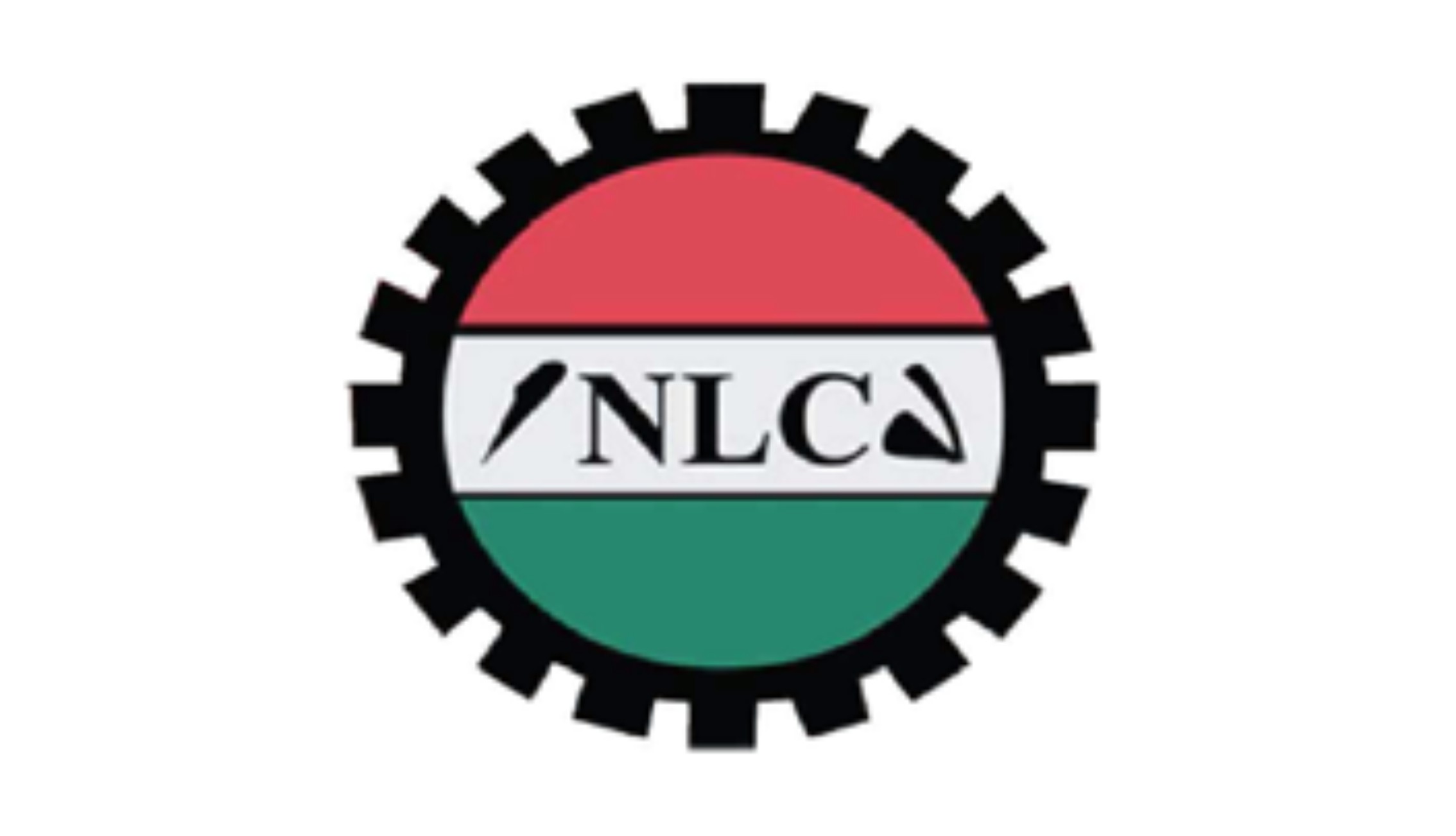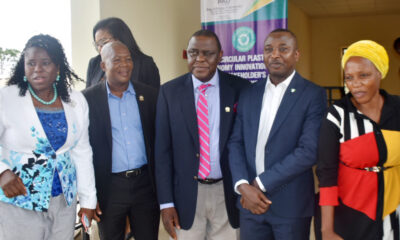Business
Embrace Renewable Energy, Expert Urges Govt
Business
TTP Trains Customs Agents, Freight Forwarders On Eto App
In a concerted effort to tackle racketeering and reduce inflated transportation costs in the Nigeria’s seaports, Trucks Transit Parks Ltd. (TTP) has trained Licensed Customs Agents and Freight Forwarders on the use of its Ètò electronic call-up system.
The training was held recently at Customs Processing Centre (CPC) Auditorium, Apapa, Lagos, in collaboration with the Nigeria Customs Service (NCS) and supported by the leadership of the Joint Association of Licensed Customs Agents and Freight Forwarders (JALCAFF), Apapa Command.
Speaking at the event, Comptroller Babatunde Olomu expressed appreciation to TTP for facilitating the training and emphasized the need for customs agents to take personal ownership of the Ètò booking process.
“I want to thank TTP for this impactful training. I encourage all customs agents to begin doing their own bookings directly. By doing so, they can take back power from the unscrupulous elements exploiting their lack of knowledge, selling tickets at highly inflated prices,” Olomu declared.
He noted that empowering agents with hands-on training was key to dismantling racketeering networks that have plagued access to the ports and frustrated efficient logistics processes.
Also speaking, the Chairman, Apapa Chapter of the Association of Nigerian Licensed Customs Agents (ANLCA), Chief Emeka Chukwumalu, said the engagement was critical to the ongoing push to reduce cargo transportation costs and ease business operations at the Apapa Port.
According to a freight forwarder, “The training is basically for us to have awareness of the operations of the Ètò call-up system through TTP. We also want to brainstorm on ways to reduce the high cost of cargo transportation in Apapa Port.
“This training opened our eyes to how simple it is to book tickets ourselves. We now know the right steps to follow and how to avoid falling victim to fraudsters.”
Earlier, Head of Operations at TTP, Mr. Irabor Akonoman, talked on common misconceptions about ticket pricing, reaffirming that the cost of Ètò bookings had remained consistent since its inception.
“The official price remains the same since inception. What people are paying higher amounts for is the manipulation by racketeers”.
Business
NECA Holds MSME Fair To Drive Growth
Towards strengthening small businesses and promoting a more supportive regulatory environment, the Nigeria Employers’ Consultative Association (NECA) says it will hold the 2025 edition of its flagship MSMEs Fair on Tuesday (May 6, 2025).
The event, themed, “Galvanising MSMEs for Economic Growth and Stability”, will take place at NECA House in Lagos.
According to NECA’s Director-General, Mr Adewale Smatt Oyerinde, the fair seeks to provide micro, small, and medium enterprises with essential tools, resources, and strategic networks to thrive in Nigeria’s challenging business climate.
He emphasised the vital role MSMEs play in national development, describing them as the “lifeblood of Nigeria’s economy.”
Oyerinde noted that the fair is designed to offer entrepreneurs practical solutions to navigate economic uncertainties, regulatory hurdles, and business scalability issues.
A major attraction of this year’s event is the keynote address by the CEO of FATE Foundation, Mrs. Adenike Adeyemi, a prominent advocate for MSME development.
She is expected to share transformative insights on innovative strategies for sustaining and growing small businesses in Nigeria.
A unique feature of the fair will be interactive sessions with key regulatory bodies. Entrepreneurs will engage directly with agencies responsible for licensing, compliance, taxation, and business registration.
NECA said these sessions aim to demystify bureaucratic processes and foster a more enabling business environment.
It also said the fair will provide a platform for entrepreneurs to exhibit their products and services, connect with potential investors, and explore new markets.
It added that participants would gain critical knowledge on digital transformation, access to finance, and strategies for sustainable business growth.
·
· NECA stressed that the fair aligns with its broader mission of promoting enterprise development and economic resilience.
·
· “By empowering MSMEs with the right support and information, the organisation aims to stimulate job creation, innovation, and long-term economic stability”, NECA said.
·
· The 2025 MSMEs Fair is expected to attract a wide range of stakeholders, including financiers, tech experts, regulators, and industry leaders, all united in advancing the growth of Nigeria’s MSME sector.
Business
Over 2m Passengers Board Blue Rail Train – Commissioner
The Lagos State Commissioner for Transport, Mr Oluwaseun Osiyemi, says over two million passengers have been transported on the Blue Line Rail since its launch, while state-run buses move an average of 42,000 commuters daily.
Osiyemi, who disclosed this during the Year 2025 Ministerial press briefing held at the Bagauda Kaltho Press Centre, Alausa, on Tuesday, noted that the Lagos State Transport Policy, launched in May 2024, was now in its implementation phase, focusing on inclusivity, safety, affordability, and sustainability.
“On rail development, Phase One of the Blue Line (Marina to Mile 2) has served over two million passengers, with Phase Two (Mile 2 to Okokomaiko) in progress.
“Phase One of the Red Line (Agbado to Oyingbo) is now operational with eight stations and additional rolling stocks procured, while Phase two (Oyingbo to link Blue Line at National Theatre) is underway”, he said.
The Commissioner said in the state-owned bus operations, over 60 million commuters have been served since 2019, with daily ridership exceeding 40,000.
He also said plans were on to deploy new buses with Quality Bus Corridors under construction, adding that the Abule=Egba Bus Terminal had also been commissioned.
“For water transport, 15 locally-built Omibus Ferries have been launched and are in operation, with the Ijegun Egba Terminal now open.
“The OMI EKO project, in partnership with the French Development Agency (AFD), will deliver 25 terminals and 78 electric ferries.
“Over 280,000 passengers have used ferry services in the past year, and 12 boats have been upgraded to meet safety standards”, he said.
On road infrastructure and traffic management, the Commissioner said 49 junction improvement projects had been completed, including ongoing ones at Ikorodu, Iju, as well as Allen-Opebi-Toyin axis.
He added that solar-powered Traffic Signal Lights, road markings covering 67.9km, new medians, laybys, and 3,941 parking lots had also been provided.
Additionally, Osiyemi announced that the deployed Automatic Number Plate Recognition cameras had detected over 470,000 traffic violations and that the Vehicle Inspection Service issued over one million roadworthiness certificates.
He also said that the Lagos State Drivers’ Institute trained more than 32,000 drivers in the past 13 months.
The event marked the second anniversary of Governor Babajide Sanwo-Olu’s second term, showcasing major strides in the transport sector under the THEMES+ agenda.
Nkpemenyie Mcdominic, Lagos
-
Women16 hours ago
Justice Prevails Over Osinachi’s Death
-

 Featured5 hours ago
Featured5 hours agoLabour Unions In Rivers Call For Improved Standard Living For Workers
-
Politics16 hours ago
Enugu LP Loses Pub Sec To PDP
-
Niger Delta17 hours ago
Diri Recommits To Support For Security Agencies …Cautions AIG, Sacks Youth Exco
-

 Nation16 hours ago
Nation16 hours agoOgun, Nike Art Gallery Set To Transform Olumo Rock
-
Social/Kiddies16 hours ago
Need For Girl-Child Education In Society
-

 News4 hours ago
News4 hours agoNBA President Sues For Workers’ Protection, Better Wage
-
Politics16 hours ago
Gunmen Disrupt Political Rally In Bayelsa ….As Turnah, Others Emerge New Associates’Leaders

